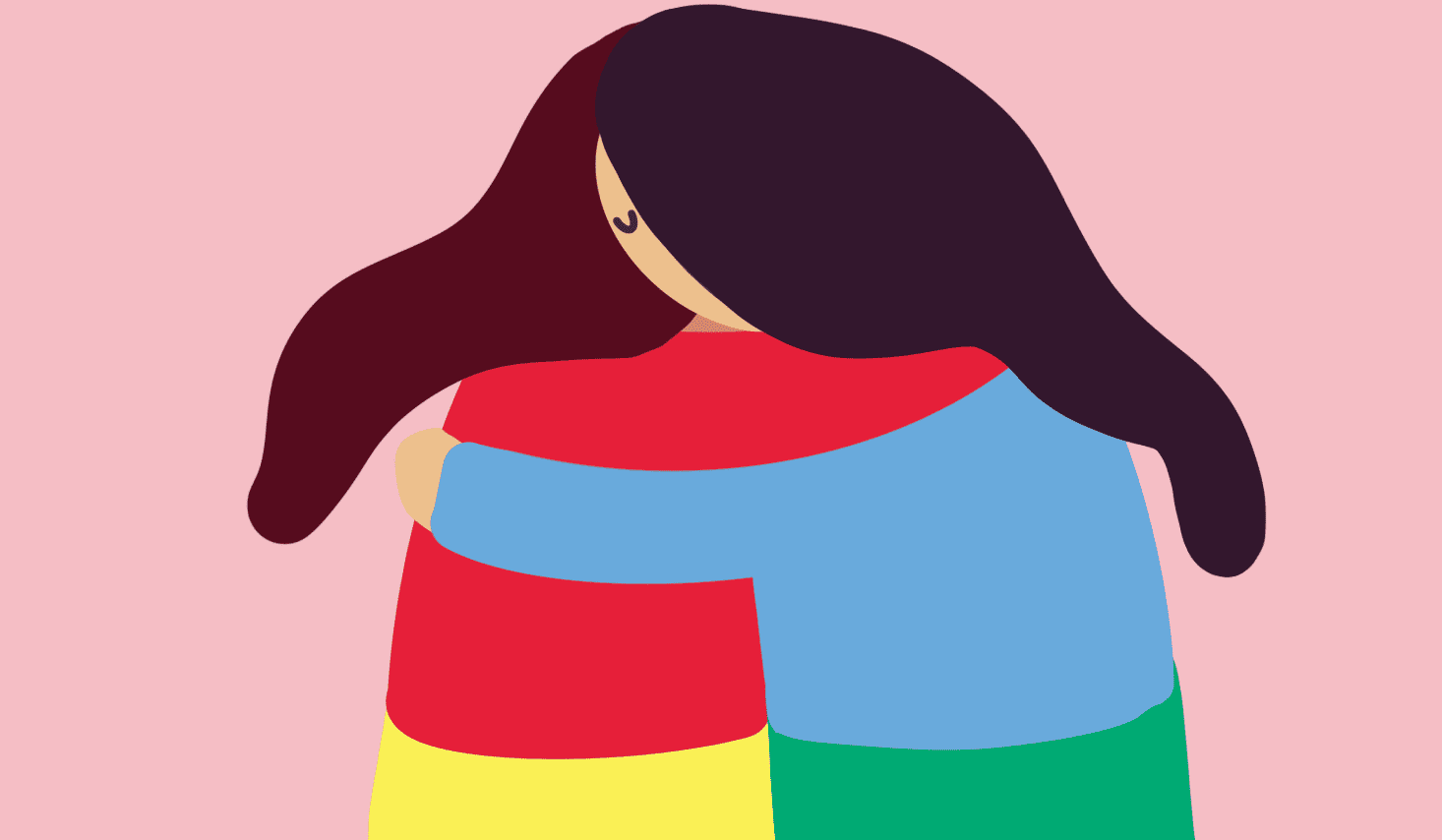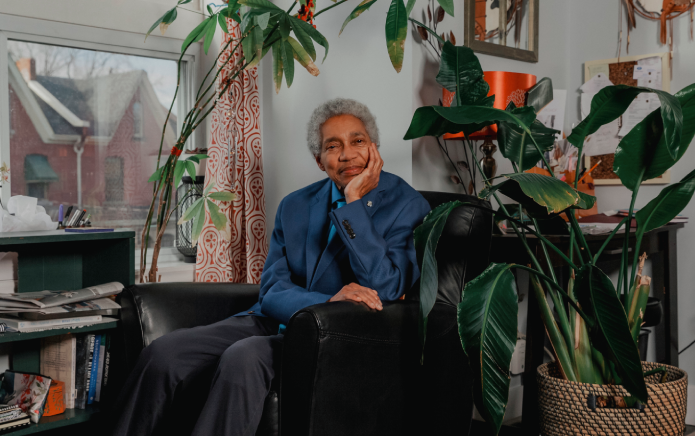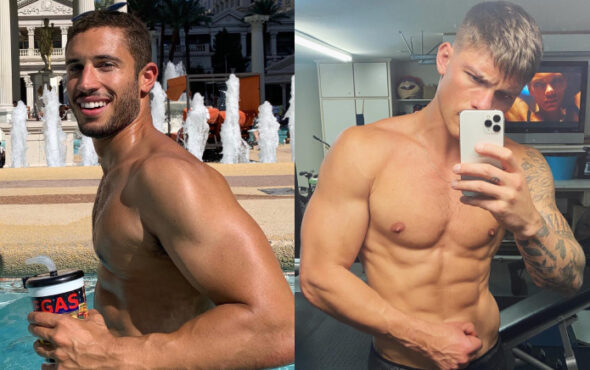
I was resting my head on my friend’s lap when she told me something I wasn’t smart enough to see for myself.
“We make more sense this way.”
What she meant was that now I am a wonderful and charming young woman, we have so much more in common, so much more to say, and our friendship is better for it.
When we’d met a few years before in 2019, I hadn’t properly realised yet that I was a queer woman. At that time, we were a cut above friends-by-circumstance. We enjoyed each other’s company and we were studying together, and that was the main hook for us.
And while I was strapped with all the awkward mannerisms of a trans girl who doesn’t know she’s trans yet, she was an incredibly confident queer woman: more or less night and day.
But being a close friend, and queer herself, she was naturally one of the first people I gravitated toward when it soon dawned on me that I needed to transition.
Over the next few weeks and months, I’d text her mostly pointless updates about my life. That spring, I stared at my phone through stinging tears as I let her know I’d accidentally used nail varnish remover to take off my mascara and had been sitting on the floor of the shower rinsing it out for 15 minutes.
She texted back saying she remembered her sister doing the same thing the other week.
I wasn’t looking for advice when I did that: when you get acid in your eye you should know to wash it out.
And I rarely, if ever, explicitly asked my friends for advice on things we collectively understand as “girl stuff”, other than to ask for thoughts on an outfit I was already wearing and couldn’t switch out anyway. I didn’t know I needed guidance. I’d had it so ingrained in my head that my transition was my responsibility that I didn’t think to seek it out.
Vulnerability is a great equaliser, and when it became my turn to impart some womanly wisdom I was surprised by how gratefully it was received
I have other trans friends but, at least in that early stage, I didn’t dream of asking for advice. They’d always said how much they hated detailing the boring and exhaustive administrative process we call “transition”, and I didn’t want to force them to. (And it’s because those details are very boring that I’m not sharing them here, either.) I knew that I’d ever earnestly asked for help, they’d offer it in a heartbeat, but I didn’t feel like it was fair of me or that it was something I was supposed to do.
Instead, I shared the stupid mistakes — intimate and mundane — that I’d made on my way to womanhood because they were queer women I so desperately admired.
Vulnerability is a great equaliser, and when it became my turn to impart some womanly wisdom I was surprised by how gratefully it was received.
My relationships had changed in a way I hadn’t even realised until my friend pointed it out to me, nearly a year later, head resting on her lap.
It shouldn’t have but it caught me completely off guard.
Maybe some people find security and confidence in coming out narratives, and if that’s you I have no intention of undermining that. But I find trans coming out narratives unhelpful.
The standard one — as in, the transition as told by people who are not trans — obviously doesn’t help anyone. That one goes something along the lines of: the trans person is born in the wrong body and daily they duffer through either dysphoria or discrimination. Elements of that are true for sure, but it’s an incredibly joyless, reductive way of telling a trans person’s story. It has no anchor in trans experiences.
But while the transition stories told by trans people don’t diminish our experiences, they can come with a lot of pressure.
If you’re lucky enough to have a trans person share with you their transition, you’ll hear about how they saw in themselves something that wasn’t quite right; how they became or are becoming so much stronger; how any doubts about whether they were “really” trans were dashed when they first recognised gender euphoria; how they decided to pursue that feeling.
My womanhood was my responsibility
Life pre-transition can feel murky and that’s scary if you don’t yet know what’s causing that. If you do eventually realise that gender is the problem here, you have the option to act. And if you then decide to transition — in whatever sense of the word transition means to you — you can be certain that it all happened because of you. You found a way to make yourself happy, and not everyone can say they’ve managed that.
That’s a lot of pressure if you haven’t reached that point. Way back at the start of my transition — having heard these stories, and the ones that don’t end happily — I assumed it all fell down to me to get it right.
My womanhood was my responsibility.
In an interview a few years before Sophie died, the producer described the process of transitioning in the most on-brand way I can imagine.
When asked about what it’s like taking hormones, Sophie talks about the terribly delicate, ethereal concepts of emotion and gender as though they’re perfectly tactile.
“And when you take hormones, you can just be aware that these are the different control systems inside of me, and I want to take control of those things to try and find a balance for me that works — that feels good.”
You’re no longer “being led by a force you don’t understand, that’s kind of distorting your sense of what having a good life feels like,” Sophie says, as though if taking hormones makes you feel fierier then you should own that, and if you feel giddy then you should own that too.
But identity is malleable, and when you’re charged with fashioning your own you are impressionable
As far as Sophie’s experience goes, those volatile and capricious hormones are something to be collared and brought to heel. These aren’t natural processes we can influence but mechanical systems we can understand and master in the pursuit of trying to feel good.
To be perfectly honest, I don’t think I’m capable of mastering much if anything, but who doesn’t want to feel good? Wasn’t that the whole point of transition? The idea that happiness — womanhood — is gained through control is a little terrifying.
Sophie recognised that this experience won’t wash with everyone, just as hormones won’t define everyone’s gender or transition, but it sits neatly alongside the other transition stories I’ve heard: Sophie’s transition was Sophie’s own.
When you’re a newly minted trans girl and you perceive that the women you admire claimed their femininity for themselves, you’d be forgiven for assuming it’s your job to do the same.
Of course, that’s not to say that any woman’s womanhood is found easily, trans or otherwise. The stories we tell of our transition are handpicked, and we’ll naturally centre our actions at the heart of them. After all, when someone asks how you came to know you are a woman, it would feel strange to respond: “My friends showed me.”
But identity is malleable, and when you’re charged with fashioning your own you are impressionable.
When Torrey Peters’ novel Detransition, Baby picks up, it’s been several years since Ames has stopped living as a trans woman and separated from his partner, Reese.
Ames has resigned to living as a man, but can never really suppress his womanhood for the same reason he can’t totally move past Reese: she “had taught him to be a woman … or he’d learned to be a woman with her”.
Reese had found Ames at the start of his transition, in “a plastic state of early development” and with both willing “she’d moulded him to her tastes”.
To enter the world as a trans person takes an extraordinary amount of trust: trust in yourself and in the world around you to treat you kindly and fairly. One of those is easier than the other. Those first steps can knock the confidence out of you in a heartbeat.
One of my first nights out, after I transitioned, was with my friend, and she had enough confidence for both of us. She saw me as a woman long before I had the self-assurance to stop doubting it. I was fine to go about my business because she trusted that I could, and now I hold that trust in myself.
If my womanhood was ever tactile or plastic, to be influenced or moulded, then it wasn’t shaped by me but by the women I trust.



